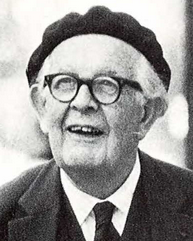Top Qs
Timeline
Chat
Perspective
Portal:Psychology
Wikipedia portal for content related to Psychology From Wikipedia, the free encyclopedia
Remove ads
The Psychology Portal
Psychology is the scientific study of behavior and mind. Its subject matter includes the behavior of humans and nonhumans, both conscious and unconscious phenomena, and mental processes such as thoughts, feelings, and motives. Psychology is an academic discipline of immense scope, crossing the boundaries between the natural and social sciences. Biological psychologists seek an understanding of the emergent properties of brains, linking the discipline to neuroscience. As social scientists, psychologists aim to understand the behavior of individuals and groups.
A professional practitioner or researcher involved in the discipline is called a psychologist. Some psychologists can also be classified as behavioral or cognitive scientists. Some psychologists attempt to understand the role of mental functions in individual and social behavior. Others explore the physiological and neurobiological processes that underlie cognitive functions and behaviors.
As part of an interdisciplinary field, psychologists are involved in research on perception, cognition, attention, emotion, intelligence, subjective experiences, motivation, brain functioning, and personality. Psychologists' interests extend to interpersonal relationships, psychological resilience, family resilience, and other areas within social psychology. They also consider the unconscious mind. Research psychologists employ empirical methods to infer causal and correlational relationships between psychosocial variables. Some, but not all, clinical and counseling psychologists rely on symbolic interpretation. (Full article...)
Selected article -

Attachment theory posits that infants need to form a close relationship with at least one primary caregiver to ensure their survival, and to develop healthy social and emotional functioning. It was first developed by psychiatrist and psychoanalyst John Bowlby (1907–90). The theory proposes that secure attachments are formed when caregivers are sensitive and responsive in social interactions, and consistently available, particularly between the ages of six months and two years. As children grow, they are thought to use these attachment figures as a secure base from which to explore the world and to return to for comfort. Interactions with caregivers have been hypothesized to form a specific kind of attachment behavioral system – or, more recently, internal working model – the relative in/security of which influences characteristic patterns of behavior when forming future relationships. Separation anxiety or grief following the loss of an attachment figure was proposed as being a normal and adaptive response for a securely attached infant.
In the 1970s, developmental psychologist Mary Ainsworth expanded on Bowlby's work, codifying the caregiver's side of the attachment process as necessitating the adult's availability, appropriate responsiveness and sensitivity to infant signals. She and her team devised a laboratory procedure known as the Strange Situation Procedure, which she used to identify attachment patterns in infant-caregiver pairs: secure; avoidant; anxious attachments; and later, disorganized attachment. In the 1980s, attachment theory was extended to adult relationships and attachment in adults, making it applicable beyond early childhood. Bowlby's theory integrated concepts from evolutionary biology, object relations theory, control systems theory, ethology, and cognitive psychology, and was most fully articulated in his trilogy, Attachment and Loss (1969–82). (Full article...)
Selected image -

Rorschach test inkblot, as created by Swiss psychologist Hermann Rorschach
image credit: public domain
Quotes -
- "Cogito, ergo sum: I think, therefore I am." — René Descartes
WikiProjects
The following WikiProjects work to improve the quality and scope of articles related to psychology. Please join us at any of them.
Selected biography -
Jean William Fritz Piaget (UK: /piˈæʒeɪ/, US: /ˌpiːəˈʒeɪ, pjɑːˈʒeɪ/; French: [ʒɑ̃ pjaʒɛ]; 9 August 1896 – 16 September 1980) was a Swiss psychologist known for his work on child development. Piaget's theory of cognitive development and epistemological view are together called genetic epistemology.
Piaget placed great importance on the education of children. As the Director of the International Bureau of Education, he declared in 1934 that "only education is capable of saving our societies from possible collapse, whether violent, or gradual". His theory of child development has been studied in pre-service education programs. Nowadays, educators and theorists working in the area of early childhood education persist in incorporating constructivist-based strategies. (Full article...)
Did you know (auto-generated) -

- ... that Fortnite's Tilted Towers was described by critics as the equivalent of "psychological torture" and being "dropped into a meat grinder"?
- ... that the psychological inner space genre was a rebellion against the traditional focus of science fiction on literal outer space?
- ... that a study of people who reported experiences of alien abduction found that many exhibited characteristics consistent with fantasy-prone personality?
- ... that the first day of filming of the psychological thriller Farah coincided with the beginning of the 2019 Lebanese protests?
- ... that although Andrzej Żuławski's film Possession is referred to as a psychological drama and horror, its genre is still a matter of controversy?
- ... that some researchers have studied Tetris as a potential form of psychological treatment?
Subcategories
Related portals
More did you know -

- ...that ASNOVA was a group of architects that linked psychology and architecture by building laboratories and expounding psychological theories?
- ...that Alexander Everett used techniques from the Unity Church and Jose Silva's Silva Mind Control, in his company Mind Dynamics?
- ...that BBC journalist Leonard Miall worked on psychological warfare in New York and San Francisco with the Political Warfare Executive during World War II?
- ...that Peter Birkhäuser was so moved by a moth trapped by a window that he painted its picture, and later analysed his thoughts and corresponded with Carl Jung (pictured)?
Psychology topics
Recognized content
Associated Wikimedia
The following Wikimedia Foundation sister projects provide more on this subject:
-
Commons
Free media repository -
Wikibooks
Free textbooks and manuals -
Wikidata
Free knowledge base -
Wikinews
Free-content news -
Wikiquote
Collection of quotations -
Wikisource
Free-content library -
Wikiversity
Free learning tools -
Wiktionary
Dictionary and thesaurus
Discover Wikipedia using portals
Remove ads
Wikiwand - on
Seamless Wikipedia browsing. On steroids.
Remove ads












